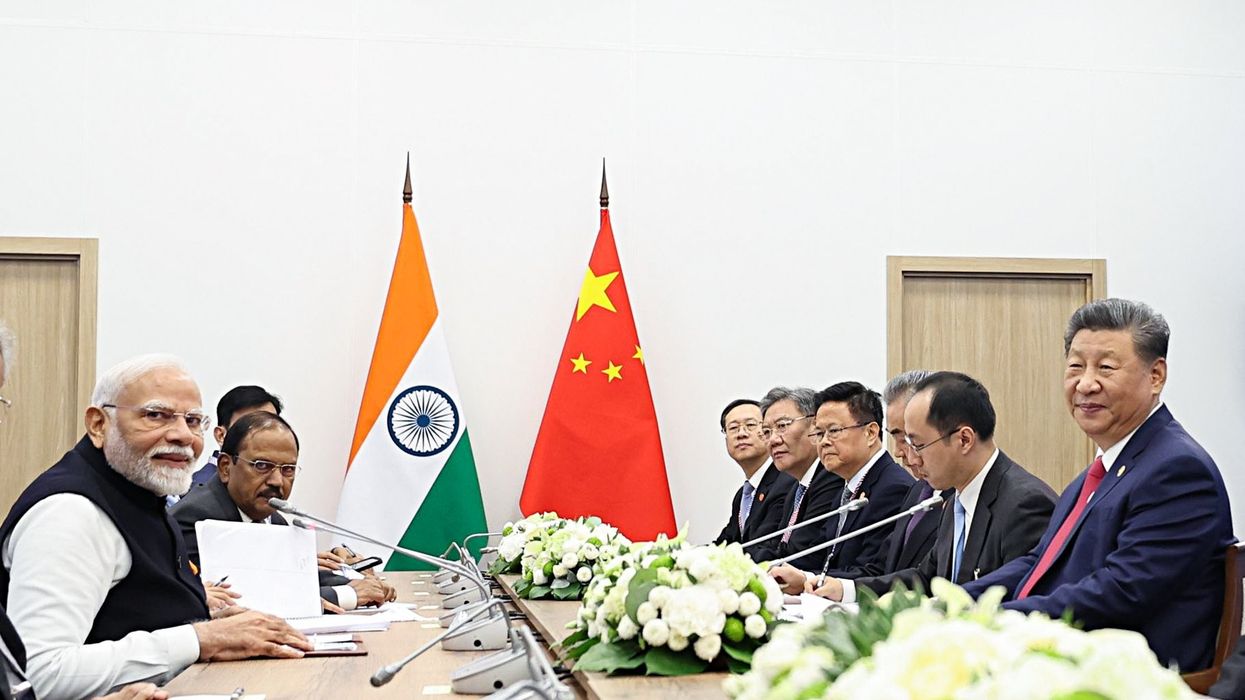INDIA and China began implementing an agreement to end a military standoff on the Himalayan border, both countries said last Friday (25), in the biggest thaw between the neighbours since deadly clashes between their armies four years ago.
Troops who were eyeball-to-eyeball at two points on the frontier in India’s Ladakh region in the western Himalayas had begun pulling back, an Indian government source said, heralding an end to the stand-off.
The process began last Wednesday (24) and was expected to conclude by the end of the month, a senior Indian army official said.
India and China struck a deal last week on patrolling the frontier, which then paved the way for the first formal talks in five years between president Xi Jinping and prime minister Narendra Modi on the sidelines of the recently concluded BRICS summit in Russia.
“According to the recently agreed solution between India and China ... their frontline armies are implementing relevant work, with smooth progress so far,” Lin Jian, a spokesperson for China’s foreign ministry said.
In New Delhi, a government official who was aware of the details said troops on both sides had started withdrawing from the areas of Depsang and Demchok, the last remaining points where they had stood face-to-face.
The source spoke on condition of anonymity as he was not authorised to speak to the media on the issue.
The Indian army official said the returning troops would also remove structures such as huts and tents and take back vehicles they had brought to positions that existed before the conflict began in April 2020.
The two forces can then resume patrolling along the frontier as they did before the stand-off, the official added.
India’s foreign ministry did not immediately respond to a request for comment.
Neither side has made public details of the new pact.
It is expected to help improve political and business ties damaged by a deadly military clash in 2020, when 20 Indian and four Chinese troops died in clashes in the Galwan Valley.
The two sides had earlier pulled back troops from five other face-off points, but the last such withdrawal took place over two years ago.
Xi and Modi agreed last Wednesday to boost communication and co-operation in a bid to help resolve conflict.
Development is now the biggest shared goal of China and India, Xi said, after the leaders met in Kazan last week, their first in five years.
“Both sides were of the view that this meeting is constructive and carries great significance,” Lin said.
“They agreed to view and handle China-India relations from a strategic height and long-term perspective, prevent specific disagreements from affecting the overall relationship, and contribute to maintaining regional and global peace and prosperity and to advancing multiplicity in the world,” he added.
But officials in India said New Delhi would still be cautious and is ready to only take baby steps towards boosting economic ties with Beijing, given the trust deficit of the last four years.
India had severed direct air links with China, banned hundreds of Chinese mobile applications, and added layers of vetting on Chinese investments.
The two sides were set to resume patrolling in the Ladakh region as they did before the deadly military stand-off in 2020Two Indian government sources said the country would now consider opening up the skies and fast tracking visa approvals to complement the recent easing of tensions, but New Delhi is not yet ready to reverse all the steps it took against Beijing any time soon.
India last week also imposed antidumping duty on five Chinese goods for five years to guard domestic players from cheap imports from Beijing.
The two countries went to war in 1962 over their undemarcated border, which has been a constant irritant in their bilateral ties.




